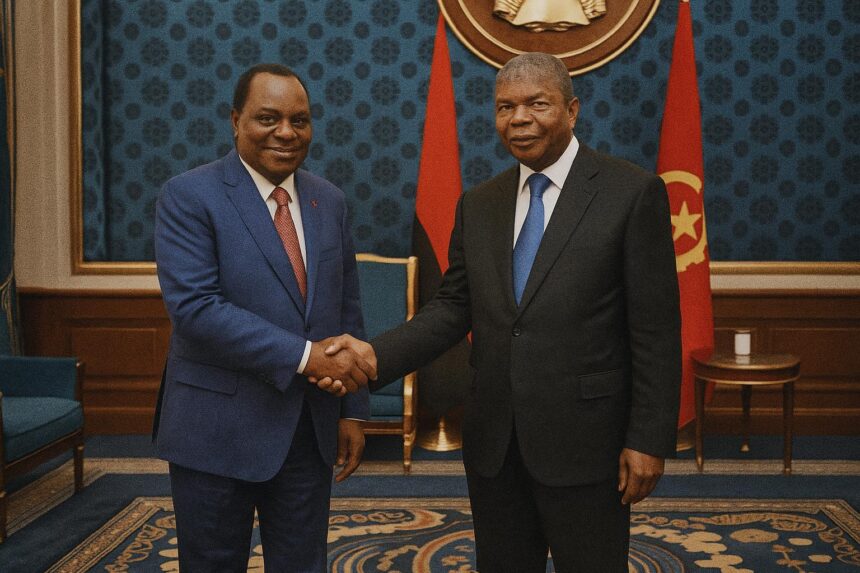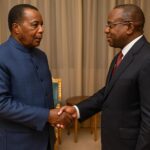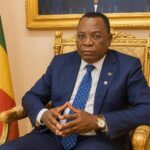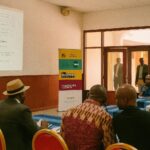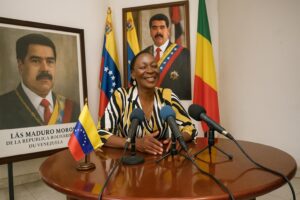Diplomatic choreography on the Kwanza River
When Foreign Minister Jean-Claude Gakosso descended the aircraft stairs at Luanda’s Quatro de Fevereiro International Airport on 21 July, the symbolism was as deliberate as the choreography. Fifty years after Angola’s independence, Brazzaville chose to send not only its chief diplomat but also Firmin Édouard Matoko, the Congolese contender for the post of Director-General of UNESCO. In so doing, President Denis Sassou Nguesso signalled that the road to multilateral stature passes through bilateral trust with Angola, a country whose regional weight has swelled under President João Lourenço’s stewardship.
- Diplomatic choreography on the Kwanza River
- Angola’s expanding continental leverage
- The UNESCO race and crafting an African consensus
- Bilateral synergies anchored in history
- Security cooperation in a turbulent neighbourhood
- Economic interdependence and post-carbon visions
- A calibrated message to external partners
- Prospects for a multidimensional partnership
- Strategic patience and the road to Paris
Angola’s expanding continental leverage
Luanda’s growing influence is no longer confined to oil barrels and defence procurements. As current chair of the African Union’s Peace and Security Council, Angola has hosted successive mediation efforts on the Great Lakes crisis, most recently facilitating a roadmap between Kinshasa and Kigali (African Union communiqué, 2024). By personally handing the UNESCO dossier to President Lourenço, Minister Gakosso acknowledged this leverage, while subtly entwining Congo’s diplomatic aspirations with Angola’s continental agenda. According to Dr Maria Cunha of the Center for Angolan Studies, “Brazzaville recognises that an endorsement from Luanda resonates well beyond Southern Africa; it echoes in Addis Ababa, Paris and New York.”
The UNESCO race and crafting an African consensus
Firmin Matoko’s curriculum vitae is tailored for UNESCO’s technocratic corridors: an erstwhile Assistant Director-General for Priority Africa, a francophone fluent in Portuguese, and an architect of the Biennale of Luanda, the cultural platform that the UN body now labels its ‘Pan-African Peace Forum’. By presenting him as the consensual ‘African choice’, Congo-Brazzaville seeks to pre-empt the perennial fragmentation of continental votes that has hampered previous bids (UNESCO Executive Board records, 2017). In private exchanges, a senior diplomat in the SADC sub-group lauded Matoko’s “ability to translate lofty cultural narratives into budget lines”, a skill that earns respect in the Paris headquarters.
Bilateral synergies anchored in history
Beyond the multilateral stage, the visit rekindled the intimate, sometimes overlooked, historical ties between the two riverine neighbours. During the Angolan war of independence, Brazzaville served as a discreet logistics rear, a memory Minister Gakosso evoked in front of the Angolan press corps. Current data from the Congo Basin Research Initiative indicate that Angola now ranks among Congo’s top five trading partners, chiefly in refined petroleum and construction materials. Plans to rehabilitate the Pointe-Noire–Cabinda maritime corridor, announced last month by both transport ministries, exemplify the practical dividends of renewed political warmth.
Security cooperation in a turbulent neighbourhood
The Congo River basin sits at the edge of the Great Lakes security vortex. Luanda’s shuttle diplomacy between Kigali and Kinshasa has visibly eased tensions along the eastern Congolese frontier, yet observers caution against complacency. Colonel Paul Okemba, adviser at Congo’s National Committee for Disarmament, stresses that “Brazzaville and Luanda operate on the premise that sustainable peace is indivisible in Central Africa”. Intelligence sharing agreements signed in March 2024, confirmed by officials in both capitals, now encompass maritime piracy monitoring in the Gulf of Guinea, an area where illicit trafficking costs coastal states an estimated two billion dollars annually (UNODC report, 2023).
Economic interdependence and post-carbon visions
While oil remains the lifeblood of both economies, the leadership in Brazzaville and Luanda is increasingly vocal about diversification. Discussions in Luanda touched upon joint participation in the Green Wall Initiative and cross-border solar electrification pilots. The Congolese delegation emphasised the congruence between these projects and UNESCO’s science mandates, arguing that Matoko’s election could funnel expertise and grants toward climate-resilient infrastructure in the region.
A calibrated message to external partners
By foregrounding African endorsement for Matoko, Brazzaville aims to arrive at UNESCO’s electoral arena with momentum difficult for extra-continental actors to ignore. Paris, Washington and Beijing have traditionally wielded decisive votes, yet a unified African bloc—fifty-four nations—can shape bargaining dynamics. In the words of Professor James Mulenga of the University of Lusaka, “What we are witnessing is a sophisticated utilisation of neighbourly diplomacy to elevate an individual candidacy into a continental priority, without alienating global stakeholders.”
Prospects for a multidimensional partnership
As the Congolese delegation departed Luanda, both foreign ministers issued a succinct communiqué committing to a bi-national commission before year’s end. Among the agenda items are the alignment of education standards, cultural heritage preservation along the shared border, and coordinated positions ahead of the Africa-EU summit slated for early 2025. Analysts in Brazzaville interpret this as an institutional mechanism designed to outlast electoral cycles, embedding cooperation into bureaucratic routines.
Strategic patience and the road to Paris
The UNESCO Director-General will be elected in late 2025. Between now and then, diplomatic calendars will whirl: COP29, the AU presidential rotation, and potentially new mediation rounds in the Great Lakes. Yet the Luanda encounter has already served its chief purpose: placing Congo-Brazzaville at the confluence of cultural diplomacy and hard-security negotiations, while showcasing Angola’s aptitude for regional stewardship. Whether Firmin Matoko ultimately secures the Paris post, Brazzaville’s July overture demonstrates strategic patience, calibrated messaging and an astute reading of Africa’s shifting power vectors.

